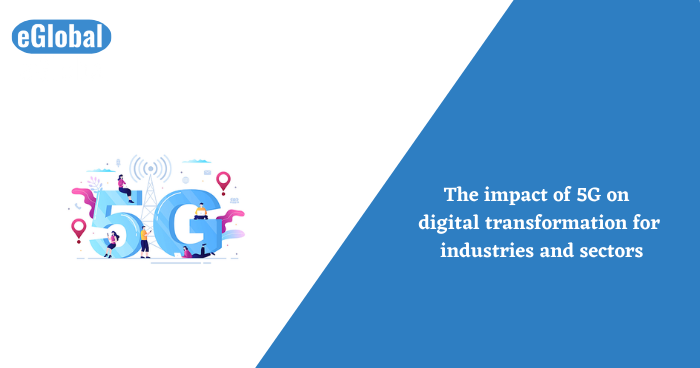
5G network
In terms of mobile network technology, 5G provides faster data speeds, lower latency, and more reliable connectivity than its predecessor, 4G. It operates on a higher frequency spectrum than 4G, allowing for more data to be transferred at once, resulting in faster internet speeds and a more responsive network.
The 5G network will enable several new applications and services, such as virtual reality, autonomous vehicles, and smart cities, which require high bandwidth and low latency. The technology is also expected to improve the efficiency and productivity of industries like healthcare, manufacturing, and logistics. Additionally, eGlobal offer best mobile app developers in India who are talented enough to provide result oriented mobile app solutions.
However, 5G deployment has also raised concerns about its potential impact on health, privacy, and security. Some critics argue that the higher frequency spectrum used by 5G could pose health risks, while others worry about the potential for cyber attacks and surveillance through the network. These concerns have sparked debates and regulatory measures around the world.
The impact of 5G on digital transformation for industries and sectors
Digital transformation will be greatly impacted by the introduction of 5G technology in various industries and sectors. Here are some ways in which 5G could bring about changes:
- Increased connectivity and communication: With 5G, industries can expect to see faster data transfer speeds, lower latency, and increased network capacity. This means that companies will be able to connect more devices and transfer data in real-time, enabling better collaboration and communication between employees and stakeholders.
- Improved automation: The low latency and high speeds of 5G could also lead to improved automation in industries such as manufacturing, transportation, and logistics. For example, factories can use 5G-enabled robots to improve their production processes, while self-driving cars can benefit from real-time data transfer and communication to avoid accidents.
- Enhanced customer experience: 5G can help improve customer experiences in various industries. For instance, in the retail sector, 5G-enabled technologies can provide customers with augmented reality experiences to try on clothes or see how furniture would look in their homes.
- Remote work and telecommuting: The COVID-19 pandemic has highlighted the importance of remote work and telecommuting. With 5G, remote workers can experience better connectivity and faster data transfer speeds, enabling them to work more efficiently.
- Big data and analytics: 5G’s high-speed data transfer capabilities can enable companies to collect and analyze large amounts of data in real-time. This can help them make better business decisions and improve their operations.
Overall, the introduction of 5G has the potential to transform various industries and sectors, enabling greater connectivity, automation, and improved customer experiences.
Advantages of the 5G Network
The 5G network offers several advantages over previous generations of cellular networks, including:
- Faster speeds: 5G networks offer faster download and upload speeds compared to 4G, with peak speeds of up to 20 gigabits per second (Gbps) and average speeds of around 100-300 megabits per second (Mbps).
- Lower latency: 5G networks have much lower latency than 4G, which means that there is less delay between sending and receiving data. This can be especially important for applications that require real-time responses, such as virtual reality and autonomous vehicles.
- Increased capacity: 5G networks can support a much larger number of devices simultaneously compared to 4G networks, which is important as the number of connected devices continues to grow.
- Improved reliability: 5G networks are designed to be more reliable than 4G, with better coverage and fewer dropped connections.
- Enhanced connectivity: 5G networks are designed to connect not only smartphones and tablets, but also a wide range of other devices, such as sensors, machines, and vehicles. This can enable a variety of new applications and services, such as smart homes, smart cities, and industrial automation.
Overall, the 5G network promises to deliver faster, more reliable, and more versatile connectivity, which could have a significant impact on the way we live, work, and communicate in the coming years.


